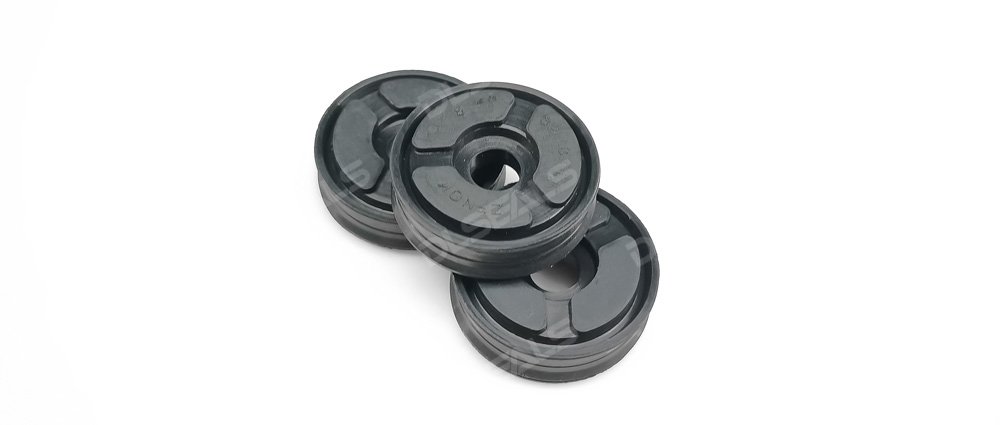News
A2024-05-10

As one of the key components commonly used in industrial equipment, rubber sealing rings play an important role in various hydraulic and pneumatic systems and mechanical equipment. However, choosing the right rubber seal involves many considerations, including material properties, dimensions, and application environment. This article will analyze these points to help you better choose a suitable rubber seal.
material selection:
Nitrile rubber (NBR): Suitable for general industrial applications, has good oil resistance and wear resistance, is affordable, and is commonly used in hydraulic systems and mechanical seals.
Fluorine rubber (FKM): It has excellent high temperature resistance, oil resistance and chemical corrosion resistance, and is suitable for environments with high temperature and complex chemical media, such as automobile engines, aerospace and other fields.
Silicone rubber (VMQ): has outstanding high temperature resistance, good weather resistance and oxidation resistance, and is commonly used in seals in the food, medical and pharmaceutical industries.
Neoprene (CR): It has good ozone resistance, wear resistance and aging resistance, and is suitable for outdoor applications or situations subject to ultraviolet radiation, such as automobile tire seals.
Dimensions:
Inner diameter (ID) and outer diameter (OD): The inner diameter and outer diameter of the sealing ring must match the pipe or bearing where the equipment is installed to ensure the sealing effect.
Thickness (CS): The thickness of the sealing ring is also crucial. It must meet the design requirements of the equipment to ensure the sealing effect without causing unnecessary pressure.
Application Environment:
Temperature range: Sealing rings made of different materials have different temperature resistance ranges. Appropriate materials need to be selected according to the working environment to prevent sealing ring failure caused by too high or too low temperatures.
Pressure requirements: Some specific application environments may require higher pressures, so seals that can withstand the corresponding pressure must be selected.
Medium properties: Different media have different requirements for sealing rings. For example, chemical media may have higher requirements on the corrosion resistance of sealing rings.
in conclusion:
Choosing the correct rubber seal requires comprehensive consideration of factors such as material properties, size specifications, and application environment. During the selection process, it is recommended to cooperate with a professional sealing ring supplier and make customized selections based on the actual situation to ensure the sealing effect and stable operation of the equipment.
Through the selection of appropriate rubber seals, the reliability and safety of the equipment can be effectively improved, maintenance costs can be reduced, the service life of the equipment can be extended, and long-lasting protection can be provided for your industrial applications.
[DLSEALS kindly Reminder] Sealing issues? Turn to DLSEALS! As a sealing component manufacturer, we specialize in customizing sealing components, providing a full range of services from design, research and development, production, testing, and more. If you have more information you'd like to know, feel free to contact us directly. DLSEALS's product experts are dedicated to serving you!